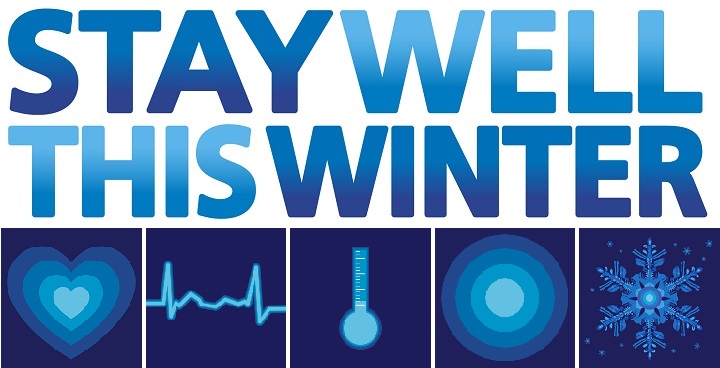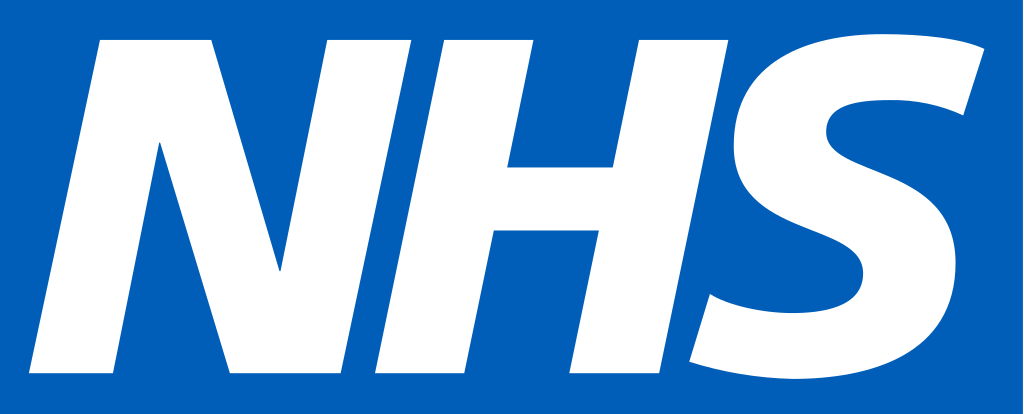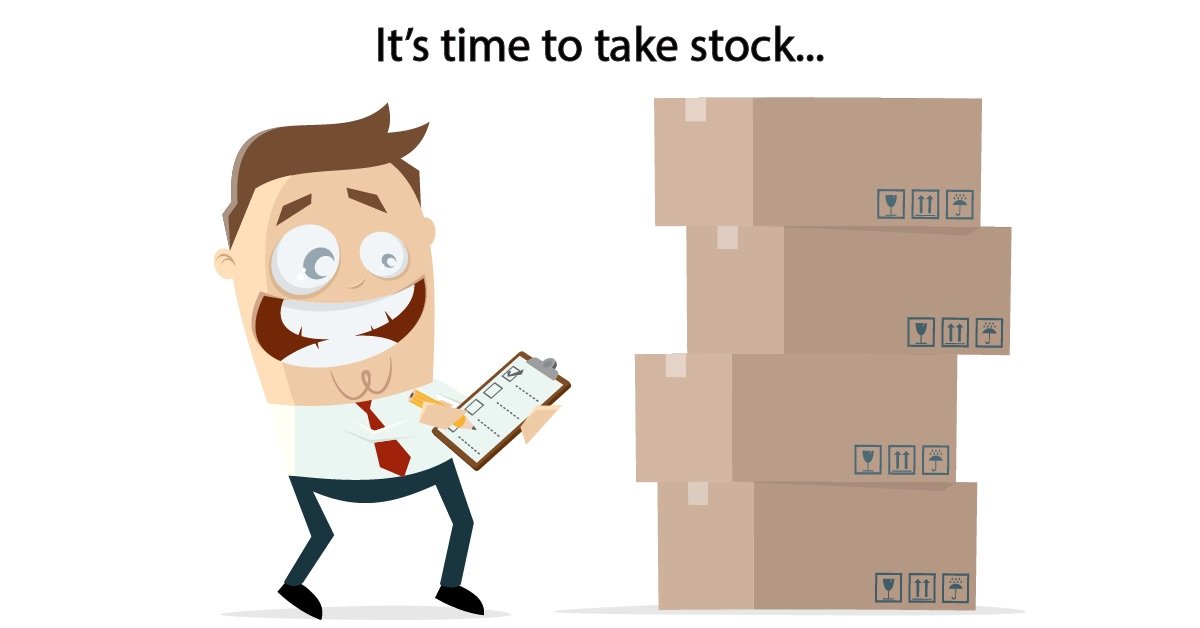Many of us are struggling with our Mental Health right now. Here are seven top tips to help you take care of yourself and those around you during these difficult times.
Continue reading “Mental Health Help – 7 Top Tips”
Many of us are struggling with our Mental Health right now. Here are seven top tips to help you take care of yourself and those around you during these difficult times.
Continue reading “Mental Health Help – 7 Top Tips”
 The winter hasn’t even hit us yet. But it will and it’s going to hit us hard. Harder than we know. Harder than we are prepared for. Do you remember January 2015, with queues of people lying in corridors in our Emergency Departments, and a high spike in winter deaths? One of the people I respect most in the world of Public Health, Prof Dominic Harrison, highlighted to me this week, that it was a three-fold, intertwining cord which led to the devastating outcomes: an ineffectual flu vaccine, high staff vacancies in the NHS, and high staff sickness rates. But here’s the thing – this year we have more factors (Covid-19, incoming Influenza, staff gaps in the NHS, people having to self-isolate and sickness levels rising – this week our surgery had 14 staff off with C-19) and although, so far we haven’t seen the spike in deaths associated with the rising number of Covid-19 cases (thanks to better treatments), our hospitals are filling up fast, whilst the mantra remains, that the NHS must get back to pre-Covid levels of operation. This is going to be a tough winter. And it’s going to be worse, as it always is in our most deprived communities, which will further widen the health inequalities gap. And people are going to die, not only of Covid and influenza, but of other preventable things like heart attacks, strokes and suicide, in higher numbers than usual. What am I, a prophet of doom? Well…..I hope not! But this is a wake-up call.
The winter hasn’t even hit us yet. But it will and it’s going to hit us hard. Harder than we know. Harder than we are prepared for. Do you remember January 2015, with queues of people lying in corridors in our Emergency Departments, and a high spike in winter deaths? One of the people I respect most in the world of Public Health, Prof Dominic Harrison, highlighted to me this week, that it was a three-fold, intertwining cord which led to the devastating outcomes: an ineffectual flu vaccine, high staff vacancies in the NHS, and high staff sickness rates. But here’s the thing – this year we have more factors (Covid-19, incoming Influenza, staff gaps in the NHS, people having to self-isolate and sickness levels rising – this week our surgery had 14 staff off with C-19) and although, so far we haven’t seen the spike in deaths associated with the rising number of Covid-19 cases (thanks to better treatments), our hospitals are filling up fast, whilst the mantra remains, that the NHS must get back to pre-Covid levels of operation. This is going to be a tough winter. And it’s going to be worse, as it always is in our most deprived communities, which will further widen the health inequalities gap. And people are going to die, not only of Covid and influenza, but of other preventable things like heart attacks, strokes and suicide, in higher numbers than usual. What am I, a prophet of doom? Well…..I hope not! But this is a wake-up call.
 It’s no surprise that so many people feel a smouldering sense of anger towards the government. There is no doubt that things could and should have been handled differently from the beginning. It’s no use saying – well….we didn’t know what we were facing, we weren’t prepared for this….. the government didn’t even follow their own advice from their preparedness exercise three years ago, they have outsourced test and trace to companies with no track record or expertise in the world of public health to the tune of £12billion and it doesn’t even work effectively. They have given contradictory advice to different regions of the UK, they have continued to allow foreign travel, they have failed to adequately explain the reasons for certain policies which key members of their inner circle haven’t even followed, they have briefed key city leadership teams through the press and failed to win the public’s trust – something which is so crucial at such a time as this. They have “followed the science” and then not followed the science…..it has been a shambles and it’s no wonder that people are disengaged.
It’s no surprise that so many people feel a smouldering sense of anger towards the government. There is no doubt that things could and should have been handled differently from the beginning. It’s no use saying – well….we didn’t know what we were facing, we weren’t prepared for this….. the government didn’t even follow their own advice from their preparedness exercise three years ago, they have outsourced test and trace to companies with no track record or expertise in the world of public health to the tune of £12billion and it doesn’t even work effectively. They have given contradictory advice to different regions of the UK, they have continued to allow foreign travel, they have failed to adequately explain the reasons for certain policies which key members of their inner circle haven’t even followed, they have briefed key city leadership teams through the press and failed to win the public’s trust – something which is so crucial at such a time as this. They have “followed the science” and then not followed the science…..it has been a shambles and it’s no wonder that people are disengaged.
HOWEVER – this is not the time to let our cynicism get the better of us! What we have to face is that we are where we are and we’re heading into winter, and our anger towards these various failings is in danger of causing us to embrace apathy or rebellion – both of which will have terrible consequences. So right now, we need to keep our heads and we need to take a deep breath. There will come a time for the government to answer serious questions about how they have handled this pandemic and the decisions they have made. But it is not now. Now, we need to look ahead and be really pragmatic about what we’re about to face together.
 Firstly, I would implore the government to listen to the wisdom of Prof Devi Sridhar. As the youngest ever Rhodes Scholar and fiercely respected Professor of Global Public Health, she is worth listening to. She has not been shy in her critique of where the government have made mistakes. But she is also speaking with a real sense of pragmatism and kindness, as she draws on lessons from across the globe to develop a roadmap for the way ahead. Her advice to government is as follows:
Firstly, I would implore the government to listen to the wisdom of Prof Devi Sridhar. As the youngest ever Rhodes Scholar and fiercely respected Professor of Global Public Health, she is worth listening to. She has not been shy in her critique of where the government have made mistakes. But she is also speaking with a real sense of pragmatism and kindness, as she draws on lessons from across the globe to develop a roadmap for the way ahead. Her advice to government is as follows:
 Secondly, as the public we need to take whatever responsibility we can to ensure we continue to do all we can. Conspiracy theories are not even vaguely helpful right now. And although it’s true that death rates have been lower than expected, there are other things to consider. This is still a dangerous virus – it will lead to many extra admissions to hospital through the winter period, especially linked with Respiratory Illness and it will affect unsuspecting and previously healthy people with the effects of long-covid – I have seen the effects of this in my (young and previously fit) patients and friends and it is truly debilitating. With all the other things we have to cope with this winter, we can’t afford to let our guard down – not now. We know from public health data that the vast majority of spread is between family, friends and neighbours. We also know that it won’t just be Covid-19 that kills people this winter. Higher than normal deaths from other illnesses/conditions are expected across the board. So, here are some sensible things we can all do to try and stay well:
Secondly, as the public we need to take whatever responsibility we can to ensure we continue to do all we can. Conspiracy theories are not even vaguely helpful right now. And although it’s true that death rates have been lower than expected, there are other things to consider. This is still a dangerous virus – it will lead to many extra admissions to hospital through the winter period, especially linked with Respiratory Illness and it will affect unsuspecting and previously healthy people with the effects of long-covid – I have seen the effects of this in my (young and previously fit) patients and friends and it is truly debilitating. With all the other things we have to cope with this winter, we can’t afford to let our guard down – not now. We know from public health data that the vast majority of spread is between family, friends and neighbours. We also know that it won’t just be Covid-19 that kills people this winter. Higher than normal deaths from other illnesses/conditions are expected across the board. So, here are some sensible things we can all do to try and stay well:
 Thirdly, the NHS is not yet ready. Yes – there have been some remarkable things which the NHS has done to respond to the first wave of Covid. Contrary to some misleading articles about General Practice, we are and have always remained open and available to our patients. We are triaging all patients via the phone to work out how we can best help and employing loads more technology to help us do this. It’s so much better for a young mum of three kids to be able to have quick video-call about one of her children’s rashes than have to lug them all down to the surgery. It’s great that we can now supplement a phone/video call with an advice sheet sent to your phone. It also means that we can prioritise who really needs seeing face to face and keep our premises as Covid-secure as possible. Many community staff were redeployed from their usual work, such as Speech and Language Therapists, Occupational Therapists and Physiotherapists, into the Nightingale and Rehabilitation hospitals, meaning they were taken away from their usual work, with a huge amount to now catch up on. This was not without cost to families who needed their support or were awaiting a diagnosis, and added to the strain in General Practice also. It was tough. But it was worth it. And we’re so grateful for the way the public were overwhelmingly understanding towards us as we tried to flex our services to cope with the demand.
Thirdly, the NHS is not yet ready. Yes – there have been some remarkable things which the NHS has done to respond to the first wave of Covid. Contrary to some misleading articles about General Practice, we are and have always remained open and available to our patients. We are triaging all patients via the phone to work out how we can best help and employing loads more technology to help us do this. It’s so much better for a young mum of three kids to be able to have quick video-call about one of her children’s rashes than have to lug them all down to the surgery. It’s great that we can now supplement a phone/video call with an advice sheet sent to your phone. It also means that we can prioritise who really needs seeing face to face and keep our premises as Covid-secure as possible. Many community staff were redeployed from their usual work, such as Speech and Language Therapists, Occupational Therapists and Physiotherapists, into the Nightingale and Rehabilitation hospitals, meaning they were taken away from their usual work, with a huge amount to now catch up on. This was not without cost to families who needed their support or were awaiting a diagnosis, and added to the strain in General Practice also. It was tough. But it was worth it. And we’re so grateful for the way the public were overwhelmingly understanding towards us as we tried to flex our services to cope with the demand.
 However, we need to take a radical stocktake of where we are and again put into motion some very different ways of operating over the next 2-4 weeks. It will allow us to work in a way that is safest for the public and will provide a sense of reassurance. Although I welcome the reopening of the Northern Nightingale Hospitals – as usual, the focus is far too much on the Acute Hospital sector and not enough on how we can help people stay more well in the community and prevent admission, particularly in our economically poorest communities. It’s important that the public understand that we need to reorganise our services in the community again in order to try and enable as many people as possible to stay well through this winter, particularly in our poorest communities, where admission to hospital and early death rates are always significantly higher.
However, we need to take a radical stocktake of where we are and again put into motion some very different ways of operating over the next 2-4 weeks. It will allow us to work in a way that is safest for the public and will provide a sense of reassurance. Although I welcome the reopening of the Northern Nightingale Hospitals – as usual, the focus is far too much on the Acute Hospital sector and not enough on how we can help people stay more well in the community and prevent admission, particularly in our economically poorest communities. It’s important that the public understand that we need to reorganise our services in the community again in order to try and enable as many people as possible to stay well through this winter, particularly in our poorest communities, where admission to hospital and early death rates are always significantly higher.
 I have nothing but compassion and camaraderie with GP colleagues as they cope with a huge surge in demand, (just indeed as I do with all NHS workers and carers right now, whatever their role). What I believe we need to do NOW though is change the way we’re working so that we can give real focus into the areas which are likely to affect people’s health most significantly over the months ahead, support our community colleagues to focus on various aspects of their work more effectively and enable our teams to be resilient and stay well themselves through the winter, whilst serving the communities with their usual brilliance. Here are my suggestions, which we are exploring in more depth across Morecambe Bay and indeed our Integrated Care System across Lancashire and South Cumbria (though important to note that this is more about function than form, so might ‘look’ different in each locality):
I have nothing but compassion and camaraderie with GP colleagues as they cope with a huge surge in demand, (just indeed as I do with all NHS workers and carers right now, whatever their role). What I believe we need to do NOW though is change the way we’re working so that we can give real focus into the areas which are likely to affect people’s health most significantly over the months ahead, support our community colleagues to focus on various aspects of their work more effectively and enable our teams to be resilient and stay well themselves through the winter, whilst serving the communities with their usual brilliance. Here are my suggestions, which we are exploring in more depth across Morecambe Bay and indeed our Integrated Care System across Lancashire and South Cumbria (though important to note that this is more about function than form, so might ‘look’ different in each locality):
Red Hubs (which can be remote in terms of triage) staffed by Paramedics, GPs and Nurse Practitioners, to deal with COVID-19, Flu, and Acute Respiratory Illness (i.e. anyone with a fever, cough or breathlessness). It may be that out of hours providers may already be in place to supplement and support this model.
Amber Hubs – a remodelled care co-ordination team approach led by the General Practice Team with proactive support from community (including mental health) teams. They would use an asset based community development model of Population Health Management and work WITH communities to:
Green Hubs – these will focus on:
The model above won’t work for all, but the principles are important. It might all seem a bit radical and it’s true that there would need to be a significant amount of resource and support flowing into the community to enable this – however, if we don’t do something like this, then it’s like knowing an earthquake is coming and not bothering to take aversive action. We don’t have the personnel we need right now, but partnering with the voluntary sector (with appropriate resource allocated) and ensuring we have the right data help and support will make this more possible. Finances must be freed up to support this model and NHSE need to give the ICS teams across the nation some slack to take this more proactive approach. It will actually lead to huge savings (of lives and money).
We’ve already lost a lot of people to Covid-19. We’re heading into a serious economic catastrophe and a winter of discontent. Good public health and good health care IS good economics. If the government heed the warnings, if the public take this seriously and work with us, if the NHS can reorganise, even at this late stage, then we will significantly improve our chances of getting through this winter well together. We won’t have another opportunity to ‘get this right’. I hope we will act now and find that we really can make it through together.
Share This: Tweet Is the decision to send some of our children back to school on June 1st the right one? What are the factors that have been considered and how has the decision been made? I”ve been asked these questions a number of times and they bother me at several levels. They bother me [Continue Reading …]
Tweet This time of Lockdown and Social Distancing, due to COVID-19 is not easy. It can have a significantly negative impact on our mental, physical, and emotional health and wellbeing. Difficult conversations are being had, isolation and loneliness are really tough and it’s particularly hard that we don’t know how long this period may last. [Continue Reading …]
Tweet The Preston Model of economics has set many heads turning and tongues wagging! If you don’t know the story, it is well worth reading about, as it offers much hope for the future. Alternatively, you can hear Cllr Matthew Brown talking about it here. If the NHS really took on board what it [Continue Reading …]
Tweet The BBC ran a news piece today about the massive rise in use of antidepressants in England and Wales over the last 10 years. And depending on which study you believe between 1 in 11 and 1 in 6 people in England are now on an antidepressant (though we must remember, that antidepressants can [Continue Reading …]
Tweet Here is a copy of the speech I recently gave at Morecambe Food Bank when Heidi Allen MP and Frank Field MP came to be with us and to listen to the community here in Morecambe Bay about our experiences of poverty. There were some incredibly moving testimonies from community commissioners of the poverty [Continue Reading …]
Tweet This week, the Kingsfund, one of the most respected think-tanks on health and social care in the UK declared that the current NHS staffing levels are becoming a ‘national emergency’. The latest figures have been published by the regulator, NHS Improvement, for the April to June period. They showed: ■ 11.8% [Continue Reading …]
Tweet Applying a Population Health Approach to Adverse Childhood Experiences Adverse Childhood Experiences are one of our most important Population Health issues due to their long lasting impact on the physical, mental and emotional health and wellbeing of a person and indeed the wider community. It is therefore really important that we apply a [Continue Reading …]
Tweet This week I had the privilege of listening to Prof Warren Larkin, advisor to the Department of Health on Adverse Childhood Experiences. This is something I’ve written about on this blog before and Warren has made me more determined than ever to keep talking about this profoundly important issue. This blog draws on his [Continue Reading …]